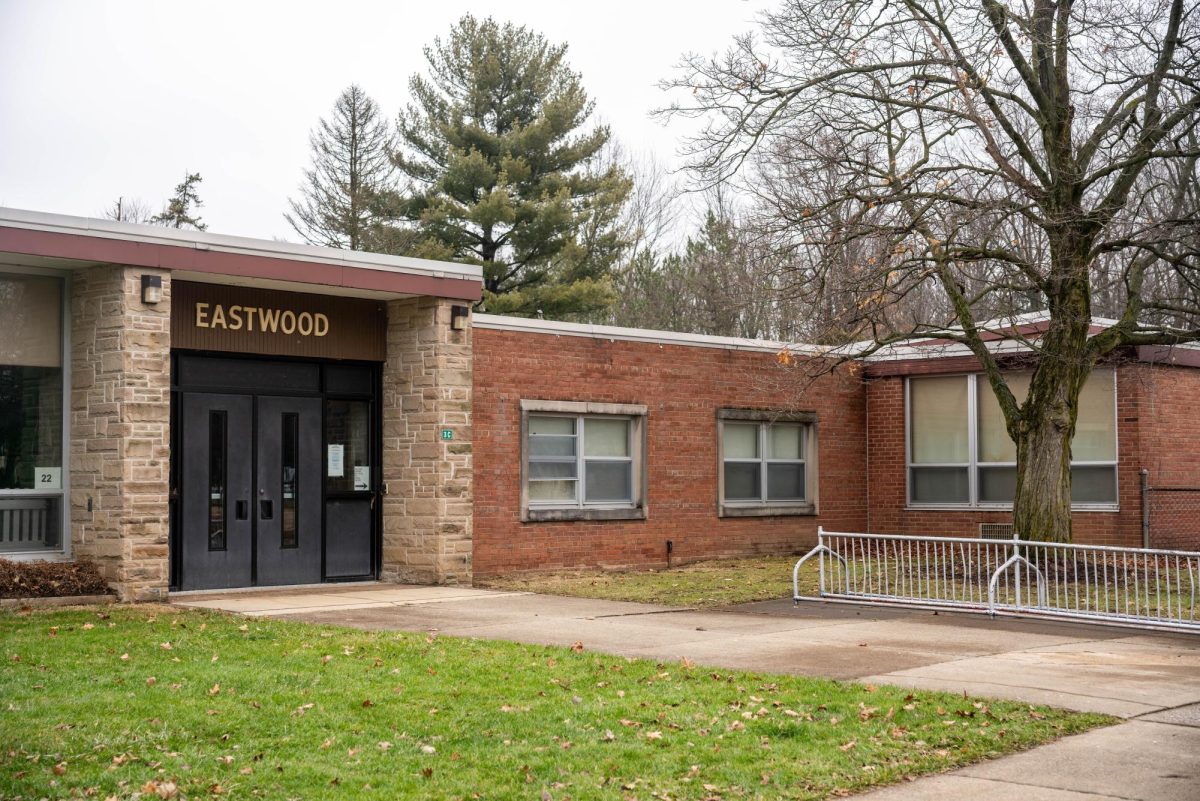The Oberlin City School District is adapting to and bracing for the impact of changes in policy under the Trump administration that will directly impact education in Oberlin elementary, middle, and high schools.
In recent weeks, the Trump administration has ended a policy that prevented U.S. Immigrations and Customs Enforcement operations from taking place at sensitive locations, including schools. It has also issued an executive order banning transgender women and girls from participating in women’s sports, including at the K-12 school level. The implications of Ohio’s S.B. 104, known as the Bathroom Bill, are still being explored. As of Thursday, the Department of Government Efficiency has started implementing aggressive cuts to Department of Education funding, including terminating $900 million in research funding and 29 grants. Further substantial changes are anticipated.
Oberlin City School Board President and Chief Prosecutor for the City of Oberlin Farah Emeka said it is the priority of Oberlin City Schools to stay apprised of these developments at the federal, state, and local levels while not causing stress to the community before all information has been processed.
“As [changes] come, we’re going to, one: find out if anything actually has to change, because some of it is conversation and anticipation and not actual action yet,” Emeka said. “And, two: talk to lawyers … and say, ‘Hey, what are we supposed to be looking at? What are our rights as of today? What are the rights of our students, our families, and how do we order our steps with relation to that?’”
One of the first of the major developments potentially affecting education came on Jan. 20, with the Trump administration’s rescinding of the longstanding “sensitive locations policy,” which prohibited ICE agents from operating and making arrests in protected locations, including schools, hospitals, and churches. Now, Oberlin schools have formulated new policy and clarified past procedures on what to do if an ICE agent wants to enter a local school.
The new protocols, as laid out in a publicly accessible document titled “Immigration Support,” dictate that, should an ICE agent visit an Oberlin school, the building administrator and district superintendent will be immediately notified and their paperwork — such as subpoenas and warrants — will be kept for review by the Board of Education’s attorney. School employees will not provide any information unless explicitly directed by an administrator. It is noted that the District will follow all federal and state legal requirements and laws.
The informational document also contains information on organizations that can provide legal advocacy for immigrants and refugees.
In recent months, other members of the Oberlin community have also gathered around supporting immigrants in Oberlin.
Professor of Comparative American Studies Gina Pérez and Professor Emeritus of History Steve Volk are members of Oberlin Community Supporting Immigrants, an organization that spoke to the OCS board in January on creating rights-centered immigration policy. OCSI also held a training open to the public at the Oberlin Public Library on Jan. 15 titled “Protecting Community Members: What Everyone Should Know About Immigrant Rights.” They plan to hold similar events in the future.
“I think our power and our strength and our ability to protect ourselves and each other is through our collective efforts and through being informed — knowing what it is to do if we are approached by somebody, [knowing] the rights we’re entitled to, what questions we have to answer, what questions we don’t have to answer,” Pérez said. “The more knowledge we have about what our constitutional rights are regardless of citizenship status, the more empowered people will feel.”
Training materials from the Jan. 15 event on immigrant rights are available on OCSI’s website. Pérez also recommends interested students look into the resources and information provided by UnidosUS.
Meanwhile, the implications of S.B. 104, the Bathroom Bill, for the Oberlin elementary, middle, and high schools still remain unclear. While Oberlin City Schools did not have multi-occupancy, multi-gender restrooms like the College, and single-occupancy bathrooms have long been available for all students in addition to gendered restrooms, the school district now faces the question of what to do if a complaint is filed about a student’s bathroom use.
“The next part that we’re working on is […] to build policy and procedure — not at the official stage yet, but at least have practices in place for what we would do if somebody tries to complain,” Emeka said. “We don’t know what’s going to happen if someone accuses someone of not going to the right bathroom. We’ve asked our administrators to work on what our response is going to be. That was in a meeting that happened [two weeks ago]. This is a fluid situation that is all very new that we find ourselves in.”
At the federal level, an executive order was issued on Feb. 5, formally titled Keeping Men Out of Women’s Sports, that bars transgender women and girls from competing in women’s sports at educational institutions. Students in Oberlin schools already participate in sports based on gender assigned at birth, and no announcement has been made altering or formalizing that policy.
“At this time, our students participate in sports based on their gender assigned at birth, by their own choice,” David Hall, OCS district superintendent, wrote in a statement to the Review. “We are committed to fostering an inclusive and respectful environment for all students while upholding the integrity of our athletic programs.”
Emeka believes what will shape the future of the Oberlin community in relation to these changes — and changes to come — is individual respect and responsibility to each other.
“We are a community of people who are good neighbors and we want to be responsible to each other,” Emeka said. “We can’t control all of the things that are going on outside of this community, but it makes me feel a lot better to know as I talk to different groups and engage with different people in the community that we’re all on the same page and all trying to keep each other protected. Presumably, we’re not going to be trying to … use these laws to make each other’s lives difficult. I feel a little bit of solace in that. I think that’s going to be the core of what’s going to allow us to move through these changes, and what is going to be the character and identity of our community. And that’s pretty much what we can offer at this point.”








